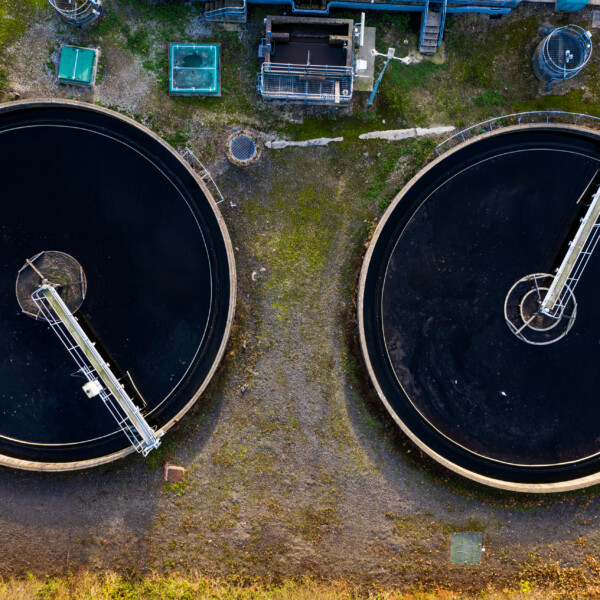Transforming digital services: DEFRA’s rapid response to policy deadlines
Ways of working
Cloud & Platforms
Data & AI
Public Services
8 min read
The Department for Environment Food & Rural Affairs (DEFRA) is the UK Government department responsible for safeguarding our natural environment, supporting our world-leading food and farming industry, and sustaining a thriving rural economy. DEFRA is a ministerial department that is supported by, and works collaboratively with, over 30 public bodies.
DEFRA’s digital and data transformation strategy aims to improve the standard of their integrated services whilst allowing customers seamless and easy access. DEFRA needed to turn around a new digital, citizen-facing service as well as comprehensive supporting database within a matter of months and decided to partner with esynergy to meet respective timelines.
The new service needed to allow its users to make applications as well as one-off payments and needed to go live within a very short period of time. The team opted for the re-use of existing platforms over building from scratch to meet deadlines and used Gov.UK Forms in combination with Gov.UK Pay.
Having addressed the urgent need for its users to make applications and payments, we were then able to focus on building a platform to deliver a scalable and resilient service (database). The existing legacy database faced challenges in supporting record management, leading users to seek alternative methods outside of the system. There were also concerns that it would not be able to accommodate the anticipated increase in records, with a real risk of all the data being lost. Because of that, the existing database was retired and phase two was the build of a new internal database and front-end to replace the 20-year-old Microsoft Access database. The collaborative effort resulted in a new database being built using Microservice architecture and Kubernetes and hosted on the cloud (Microsoft Azure). Pipelines were also established to ensure code coverage thresholds were met, vulnerabilities were detected, and code quality issues were identified. The new database is now stable and its data secure. To ensure this, the team worked alongside the policy team to ensure the database not only met the immediate needs of its users but also the basis for an entirely new way of working to allow improved efficiencies and a digital platform for citizens and other government agencies.
Efficiencies realised during the engagement
Improved the user interface and task flow, reducing the time taken on repetitive tasks
Prevented the duplication of database records
Enabled the accommodation of core changes to records
Replaced uncategorised comments with an ordered audit trail
It has been an absolute pleasure working with the esynergy team to deliver a time-critical and high profile project. The team have been sympathetic to the wider pressures of the work and always met me with support and understanding. The team have been patient and unruffled by the rapidly changing landscape and made good use of the agile methodology to identify and deliver what was needed. There has been a willingness and flexibility from everyone to get stuck in, often working across usual job roles, to get the job done. Personally I have really appreciated the team going above and beyond on multiple occasions to guide me through the digital processes since I’d had no prior experience in delivering a service of this kind.
Index Manager
Business Management
Department for Environment Food & Rural Affairs
Through agile ways of working, the team were able to deliver this new platform whilst causing no operational disruptions to users during the policy period. As a result, a new database and platform for the ongoing service was built, with industry-recognised software engineering practices. Some of the practices are listed below;
- Implemented Agile ways of working
- Ensured user centred design
- Adhered to GDS prototyping and development toolkit
- Ensured accessible implementation
- Automated deployment to lower environments
- Hosted on the cloud using microservice architecture and Kubernetes
- Utilized auto-scaling
- Ensured public source transparency through GitHub
- Utilised infrastructure and networking alerts
Value delivered
The new digital service and database have resulted in the following value gains
Rapid response to meet critical deadlines
The team were able to meet extremely tight and immovable timelines to meet the policy requirements to deliver a digital service within one month and an internal database within three months, whilst working under the pressures of the press spotlight.
Cost savings through efficient resource utilisation
By utilizing Gov.UK Forms no additional cloud costs were incurred throughout the policy period, allowing the teams to deliver a scalable, resilient and fully supported cloud environment.
Scalability assured through rigorous testing
The GOV.UK Forms team conducted thorough performance testing to guarantee a smooth user experience during the policy period, free of technical glitches. This project was the largest GOV.UK Forms implementation to date with over 60,000 applications received and 50,000 certificates issued during the policy period.
Re-use of existing services
Rather than build new and expensive services, the project has enabled DEFRA to advocate for using available GDS (Government Digital Services) which will ultimately save taxpayers money.
...What an adventure it has been, I feel like we have all been working together for years not months! Each and everyone of you have played a part in delivering the service and the new Index – under incredible pressure and despite the highly sensitive nature of the policy. We can all be incredibly proud of this achievement and I’m sure that individually and together we have learned so much (some of which we’ve probably already forgotten as things moved so fast!). I know most of you are still in the thick of it deploying the new database, but please do take a moment to reflect on this last phase, and all you have achieved. Personally I feel very lucky to have worked with such skilled, motivated and resilient people and I’m glad we all came together to deliver this difficult service. Huge well done, and thank you!
Lead Product Manager
Digital Data and Technology Services (DDTS)
To continue with DEFRA’s strategy of improving the standard of their integrated services whilst allowing customers seamless and easy access, the team is continuing to enhance the functionality of the service, and phase three of the project is currently in discovery. The improved functionality could include; user updates, automation and alerting, and enhanced reporting. To date, the team has conducted a round of research with secondary users that has confirmed their hypothesis that these stakeholders want to have access to the data stored in the database. The functionality has the potential to include;
Access to data
The vision includes offering external stakeholders' direct access to data stored in the database. Currently, the only way for them to access the data is by contacting the DEFRA team by phone or email. Their request is then manually dealt with, and the data prepared before a response is manually created. This end-to-end process can take days. Direct access under strict controls will allow users to search for specific data and generate reports themselves, leading to significant time savings. This initiative is especially important as the number of records has grown substantially, from 3,500 to over 50,000. To complement direct data access for external users, a comprehensive reporting portal is being considered. This portal could offer dashboards of key metrics, empowering internal stakeholders with operational interests to serve themselves for most of their needs, and reducing the burden on the service team. Due to the public interest of the policy, the team are currently spending significant time on freedom of information requests. To reduce the need for the team to handle these requests, a key metrics solution could be published on GOV.UK to enable users to self-serve.
Automated record updates
DEFRA currently receives forms via email to update the database manually. Considering the volume of increased records (by a factor of 20), without automating record updates this would result in a need to significantly increase the size of the team to administer the service. As a result, the team is hoping to implement a solution to allow users to submit forms online and update records automatically. This should lead to cost reduction whilst ensuring a better user experience.
High quality data
The team has already introduced measures and is continuing to improve the quality of the data. Data mining will also be utilized to harness the existing data to improve the current service and influence DEFRA’s future policies.
We faced immense pressure to deliver a new digital service and database within tight deadlines, all while under intense scrutiny. Thanks to our collaboration with esynergy, we not only met those deadlines but also exceeded expectations. The new platform has not only streamlined our operations but also saved taxpayers' money by utilising existing services. It's a testament to the efficiency and dedication of the teams involved.
Tim Howard
Deputy Director, Major Projects
Cross-Cutting Technical Services
Ways of working
Cloud & Platforms
Data & AI
Public Services
Get in touch
Need support with your platform vision?
Discover more


